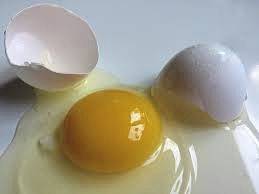They’re cheap, nutritious and an essential part in the diets of billions around the world. Still, there are a lot of myths surrounding the ordinary egg.
Get ready for a bit of shell shock. I’m about to scramble everything you think you know about eggs.
Myth: Brown chickens lay brown eggs
Truth: The color of a chicken does determine what color eggs it lays, but it’s not the feathers that give it away — it’s the earlobes. (Yes, earlobes!) Chickens with red earlobes lay brown eggs, while white eggs usually come from chickens with white earlobes. There are always exceptions, but if you’re wondering what color a hen’s eggs will be, this general rule is a good place to start.
Myth: All eggs need to be refrigerated at all times
Truth: Whether or not you need to refrigerate your eggs depends on where you live. If you live in the United States — or Japan, Scandinavia and Australia — you do need to keep your eggs cold. That’s because egg producers in these countries are required to wash their eggs to protect against salmonella. However, it’s this washing process that strips the egg of its natural protection, making it crucial that they are kept cold to protect against spoilage and pathogens.
Myth: Brown eggs are more nutritious than white eggs
Truth: We might think of brown foods — like rice, bread or sugar — as being healthier, but with eggs, that’s not the case. Studies have shown that brown eggs are pretty much the same thing. The color of the shell depends on the breed and the color of the chicken’s earlobes (see above).
Myth: Never ignore dates on an egg carton
Truth: Stores are required to stamp “sell by” or “expiration” dates on egg cartons. But if you have kept your eggs refrigerated, there is no reason why they can’t still be eaten several weeks or even a few months past these timelines. These dates are a guide for food quality, not necessarily food safety.
Myth: Cage-free farming means happy hens
Truth: If you pay extra for “cage-free” eggs, you might not be getting what you think. Cage-free hens still may never see daylight, and they are exposed to unnatural amounts of light to help stimulate egg laying. Many producers mutilate the hen’s beaks so they can’t harm other birds, and most of the male chicks are still killed when they’re born since they have no commercial value to egg producers. If you want to make sure your eggs are coming from happy chickens in the green fields you imagine, look for the Certified Human label, or buy your eggs from a small, local producer who can answer your questions.
Myth: Every egg is a chick
Truth: Eggs are just that — eggs. Unless they are fertilized by a male, they stay eggs. The eggs for sale at your supermarket are unfertilized and were never, and can never become, chicks.
Myth: Eating lots of eggs will raise your cholesterol
Truth: If you’ve been cutting back your egg consumption all of these years, you might want to reconsider. Egg yolks do contain more fat and cholesterol than the white part, but studies over the past several decades have shows that not all fat is bad for you, and also that high-cholesterol foods don’t necessarily translate to heart disease. Additionally, yolks are a great source of protein, riboflavin and selenium, along with other vitamins and minerals. Talk to your doctor if you’re still over easy about eating more eggs.
Myth: Fresh eggs are always best
Truth: Older eggs aren’t unsuitable for cooking, and some recipes even call for them. Try using older eggs the next time you go to hard-boil. The tougher membrane inside the shell and the more developed air pocket make them much easier to peel. If you’re considering using an older egg in a recipe, crack it into a separate bowl first and examine it to see if it’s safe.








